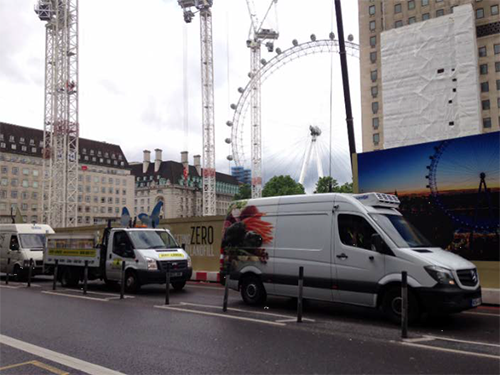United States-European Commission Urban Freight Twinning Initiative: Compendium of Project Summaries
| ||||
| Pilot | Research | Europe |
Freight transport currently makes up about 16 percent of all road vehicle activity in our cities; by 2030, the European Union would like to see largely carbon-free logistics systems operating in its urban centers. With van traffic predicted to increase by 20 percent in London by 2030, and the slow uptake of alternatively fueled and electric goods vehicles, more radical strategies are needed to reduce the numbers and impacts of freight vehicles in cities.
Working with some major parcel carriers in London, this project is examining the potential for closer operational collaboration among carriers to reduce urban traffic and energy demand while maintaining customer service levels.

Goods delivery and service vehicles on a London street.
Source: FTC2050.
Research
April 2016 - March 2019
London, UK
Professor Tom Cherrett
Principal Investigator
University of Southampton
023 80594657
T.J.Cherrett@soton.ac.uk
The key research objectives are to:
This research involves a multidisciplinary collaboration, led by the University of Southampton's Faculty of Engineering and the Environment, and involving the Southampton Business School, Lancaster University's School of Computing and Communications and Data Science Institute, the University of Westminster's Faculty of Architecture and the Built Environment, and University College London's Bartlett Centre for Advanced Spatial Analysis. Two major carriers (TNT and Gnewt Cargo) have agreed to participate in the research along with Transport for London (TfL). TfL has a primary interest in how carrier operations affect street performance in urban areas and how urban space could be better used to accommodate last-mile delivery.
|
United States Department of Transportation - Federal Highway Administration |
||